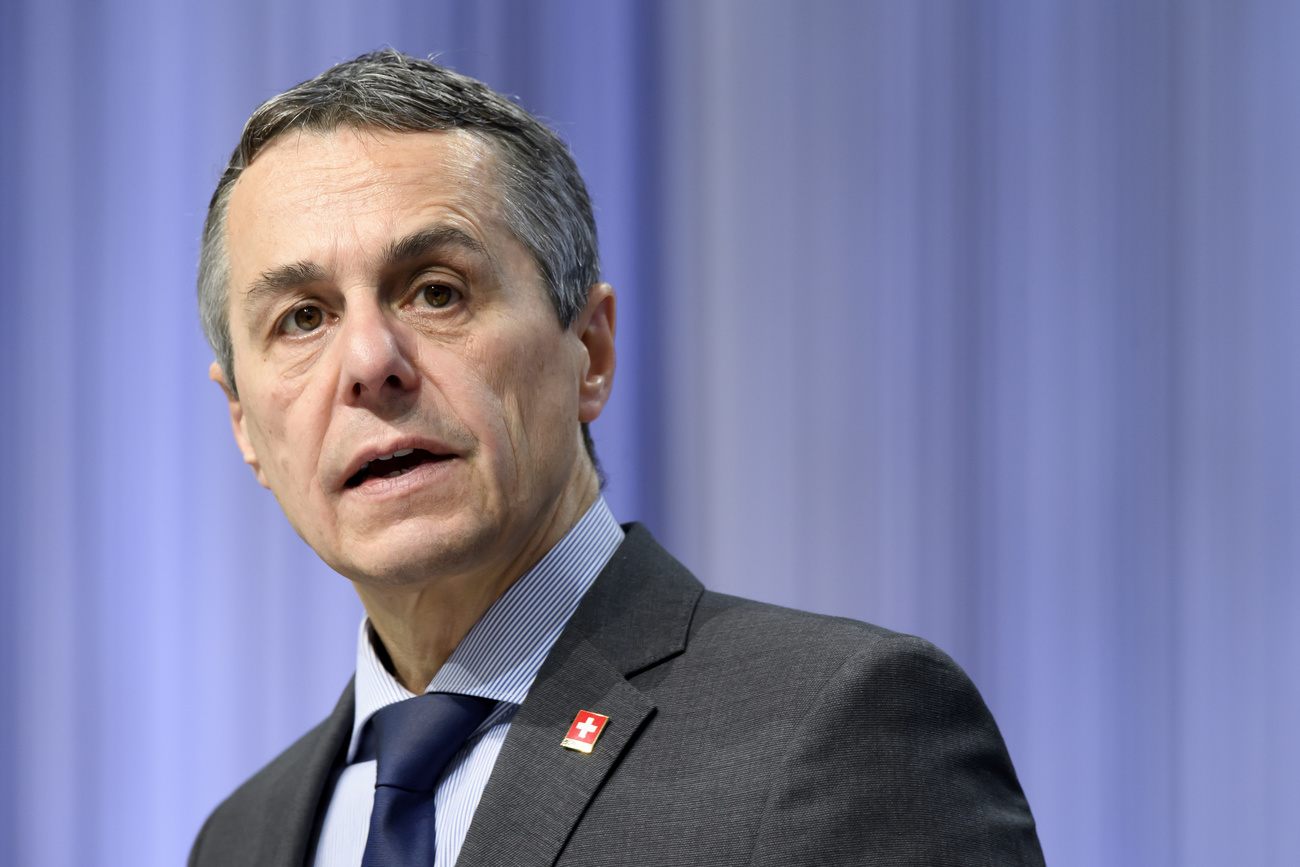
Swiss-China human rights dialogue to resume in 2022

Direct discussions between Switzerland and China on human rights issues will resume in 2022 after a three year gap, the Swiss foreign minister has said.
Ignazio Cassis said on Wednesday he had agreed this with his Chinese counterpart Wang Yi during a phone call in November. Concretely, it means a resumption of physical meetings and discussions around human rights that “go well beyond a dialogue between civil servants”, Cassis told parliamentarians in Bern.
Foreign ministry officials from both sides are this month set to draw up an agenda of key points to be discussed when the exchanges resume next year.
The talks, run on an annual basis since 1991, stalled in 2019 after Beijing objected to a letter Switzerland co-signed at the United Nations, calling for the closure of controversial Uighur camps in China’s Xinjiang region. Switzerland and 21 other Western states called for the closure of “re-education camps” for Uighurs and for access to be opened for visits by the Office of the UN High Commissioner for Human Rights.
This October, again at the UN, Switzerland withdrew its support for another joint statement by 43 states condemning the situation in Xinjiang.

More
Swiss pursue ‘special path’ with China, says foreign minister
‘Central element’
Cassis was speaking on Wednesday during a Senate debate around another parliamentary motion that wanted the government to beef up its human rights promotion in China – notably by posting more rights-focussed diplomats in Beijing and by raising human rights as an issue at “every bilateral and multilateral meeting and discussion with China, at all levels”.
The motion was clearly rejected. While a majority of Senators said they backed the sentiment, they said the government’s China strategy adopted in May is sufficient. Cassis added that human rights were a “central element” of the strategy, and are already brought up at every meeting with China. The resumption of political dialogue will enable even deeper discussions, he said.
Supporters of a harder line on China, mainly from the political left, say the situation in China has worsened over the past decade, and that Switzerland could and should do more. Social Democrat Carlo Sommaruga complained on Wednesday that “Switzerland has done everything to promote economic interests and relations with China, while human rights remain secondary”.
In 1950 Switzerland was one of the first Western nations to recognise the People’s Republic of China. Since 2010 China has been its biggest trading partner in Asia and its third-largest trading partner globally after the European Union and the US. A bilateral free-trade agreement took effect in July 2014.

In compliance with the JTI standards
More: SWI swissinfo.ch certified by the Journalism Trust Initiative




























You can find an overview of ongoing debates with our journalists here . Please join us!
If you want to start a conversation about a topic raised in this article or want to report factual errors, email us at english@swissinfo.ch.